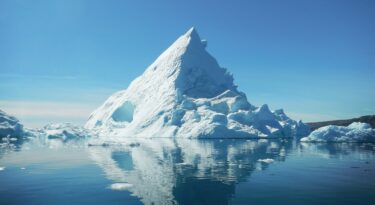
This blog was written by Anthesis CEO, Stuart McLachlan and is part 6 of a series of insights on this years’ Conference of the Parties 28 (COP28) in the United Arab Emirates.
I hesitate to compare OPEC members at COP28 with turkeys and their voting intentions around Christmas. But as the negotiation at COP28 finds itself mired in familiar disputes about fossil fuels, I don’t think we should be all that surprised when oil producers struggle to support phasing them out. We know it’s unlikely that someone will choose to do something when it would very obviously be bad for them.
For all the cynicism about the event being held in a region whose wealth has been dependent on the extraction and burning of fossil fuel, it was at COP28 that fossil fuel (as opposed to just emissions) phase out got aired for the first time. OPEC’s Secretary General set out to torpedo this new departure with a much-publicised letter, in which he urged all members and indeed all participants in the COP “to proactively reject any text or formula that targets energy i.e. fossil fuels rather than emissions”.
As I write, the outcome of COP28 still hinges on this dispute: oil producers prefer a new draft agreement with vague plans to “reduce consumption and production of fossil fuels in a just, orderly and equitable manner”. Many other nations and blocs see this as inadequate, and the discussions rumble on, with the planned finish today (Tuesday) now in doubt.
The fossil fuel sector is reported to have made $3BN profit a day for the last 50 years. Returning reluctantly the metaphor I began with, COP 28 is seeking to negotiate Christmas with some very powerful turkeys, and has chosen to hold discussions at the turkey farm. Is there any reason we should be optimistic about Christmas as a reality?
Much depends on whether those with most to lose can instead find hope and progress in the transition. China is an interesting comparator. The climate narrative is often “China bad”. In the UK we claim we are doing more of the work to reduce emissions, forgetting that we have progressively outsourced our footprint to our supply chain, much of which is in Asia. China of course needs to do more and phase out coal, but China is building more low-carbon generation annually than any other country. Wind energy is reported to be growing 15.1% year-over-year to reach 400 GW of capacity, and solar growing 45.3% year-over-year to reach about 520 GW of capacity. China’s 2030 renewables targets are expected to be met in 2025, and then to continue rising.
China also boasts the world’s largest market for e-buses, making up more than 95% of global stock. At the end of 2022, China’s Ministry of Transport announced that more than three-quarters (77% or 542,600) of all urban buses in the country were “new energy vehicles”. The BBC reports on the speed of this transition as remarkable. They claim that In 2015, 78% of Chinese urban buses still used diesel or gas, according to the World Resources Institute (WRI). The NGO now estimates that if China follows through on its stated decarbonisation policies, its road transport emissions will peak before 2030. Christmas is looking pretty good to some powerful nations. A decarbonised and sustainable future reimagined may show where value will be created. It’s an opportunity.
How has China found this more attractive path – and what can other countries learn? Over the weekend I met up with a friend from a part of the world known for its serious security issues. He said “walls of properties in my country will continue to be strengthened and security systems enhanced until the danger outside the perimeter dissipates”. As conditions deteriorate, investment goes into building the walls rather than into resolving the societal breakdown outside that is the root of the problem. Meanwhile they see people in other countries, other economies, thriving outside the walls in the territory that they are so fearful of.
This is the great conundrum of the transition. How do OPEC countries balance the protection of their assets and in parallel invest in a future that they don’t perceive to be to their detriment?
To return to the festive poultry metaphor, there’s a lot of enthusiasm amongst the turkeys for ‘nut roast’: those new technologies like CCS which shift the focus on to emissions rather than the fuels themselves. The obvious problems with availability and scale of these technologies have been made abundantly clear in Dubai. The argument now hinges not on whether a transition is necessary, but the timing of the pivot. Denial and delay has left us with very little time and whatever happens at COP28, OPEC members will come under increasing pressure to take decisions that will seem like self harm – before they are ready, and the technologies seen as the solution are in place at scale. Here’s where I think they should learn from China – rather than desperately trying to hold on to the treasure of the old era, they should focus on the greater treasures of the new.
We are at an exciting moment in history. A time when we get to reimagine and redesign models and systems that draw on what’s good from the era just passed and learn from our failings. The creative destruction is playing out in front of us, opening up space for the next generation, for Companies like Anthesis, and for non OPEC (and possibly OPEC) countries, to show how the threat is coming from within the walls, and the opportunity is on the outside. Incidentally, this is the theme of ‘the Adventure of Sustainable Performance’ that Dean Sanders and I wrote this year – a great Christmas gift whatever you are planning for dinner.
We are the world’s leading purpose driven, digitally enabled, science-based activator. And always welcome inquiries and partnerships to drive positive change together.




